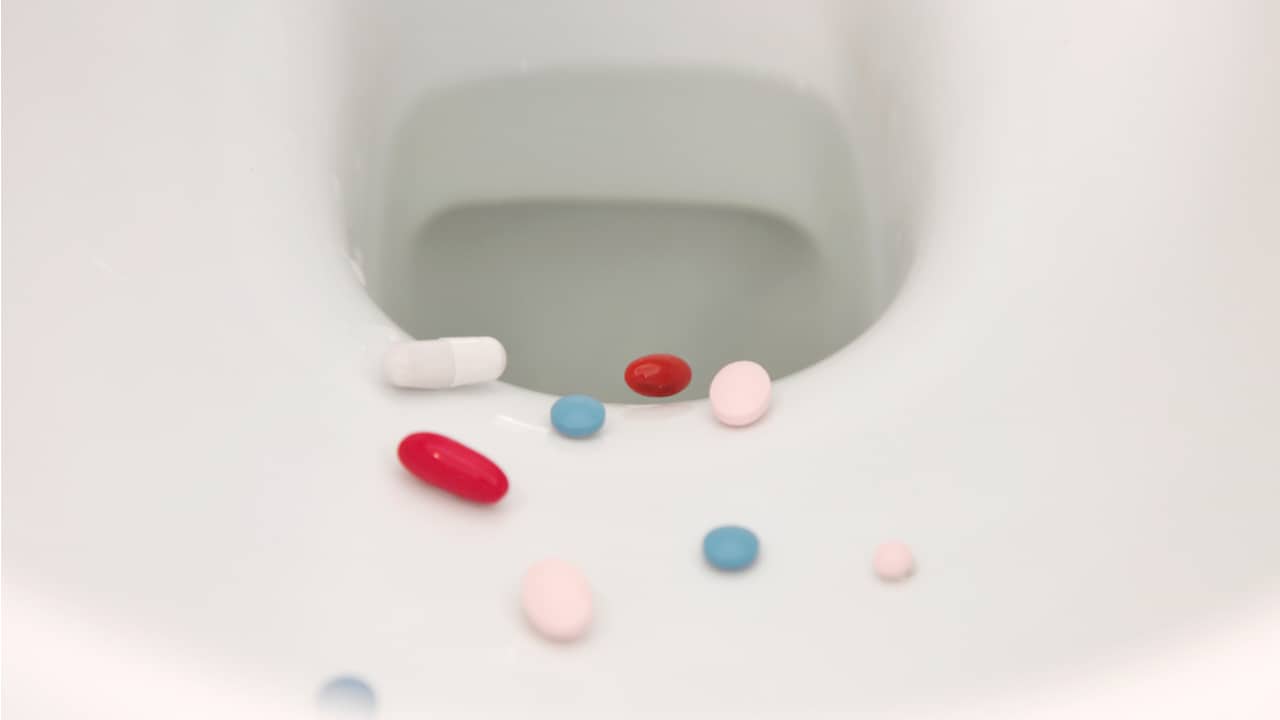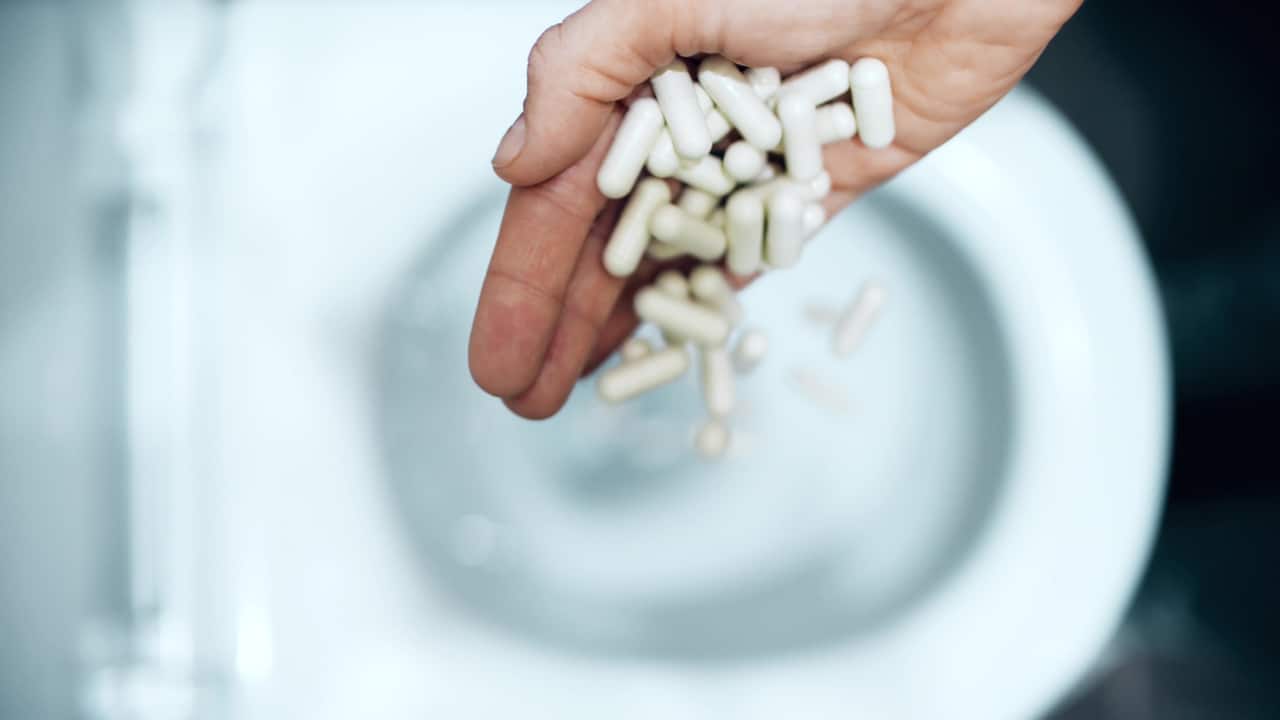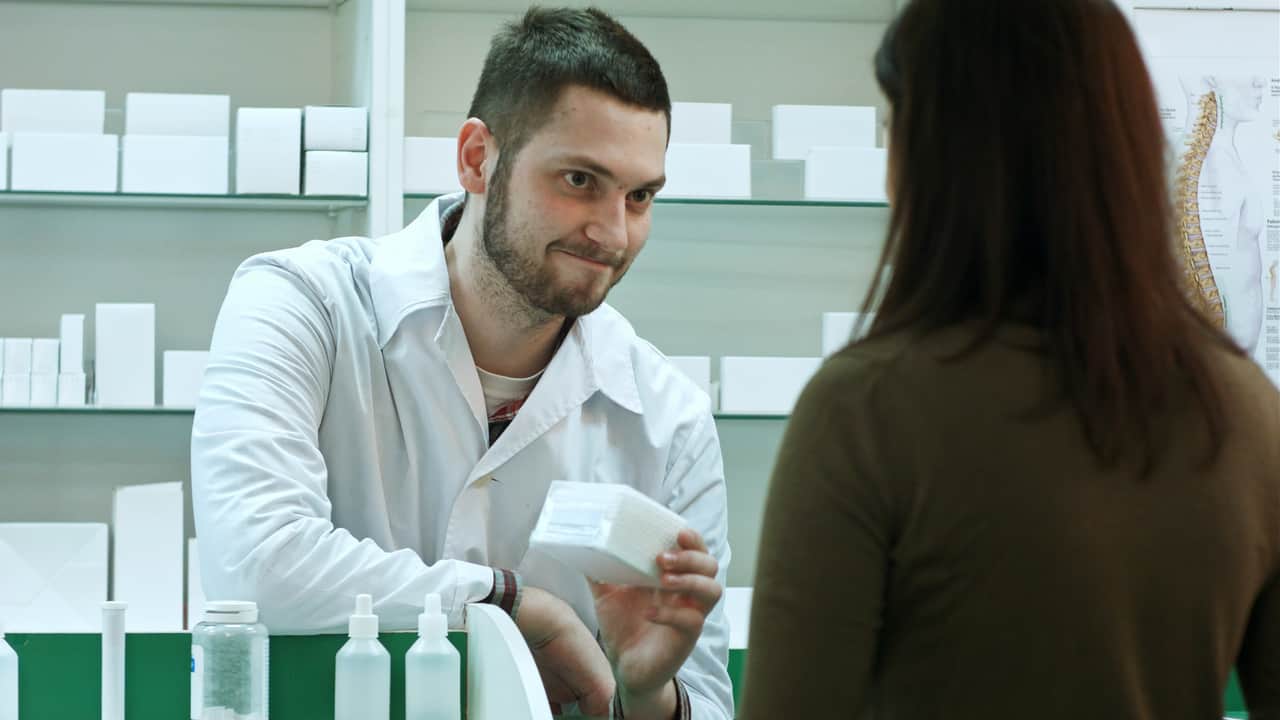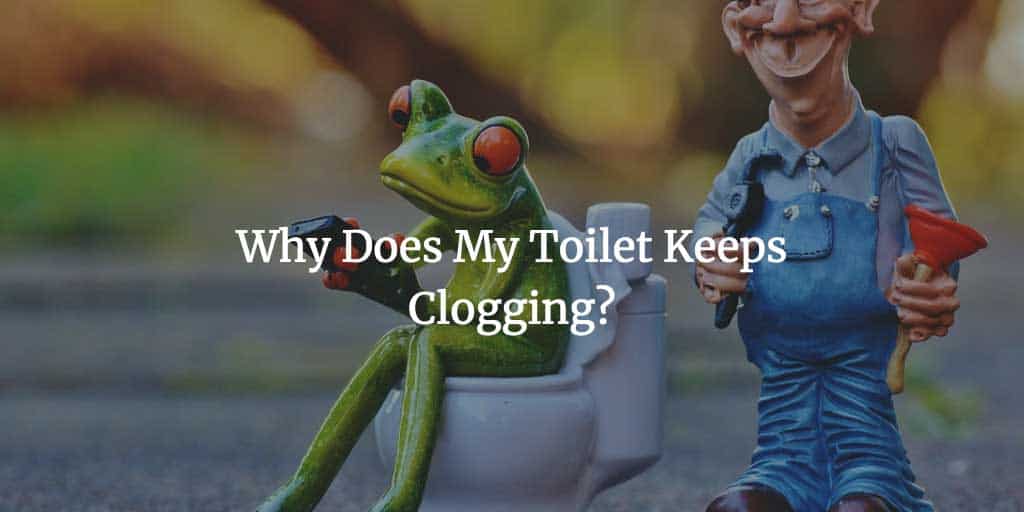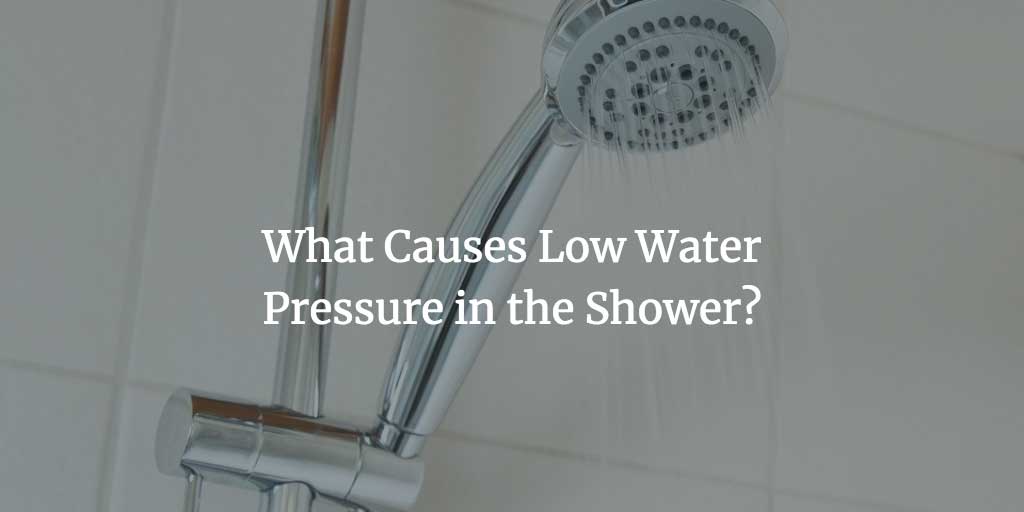There’s a pretty good chance you have old, unused medications somewhere in your home. Out of all prescriptions, the ones that people tend to leave unfinished the most are antibiotics and pain medications. But, can you flush pills down the toilet? The answer is not so simple.
Disposing of these and other drugs can be quite tricky – we want to get rid of unused pills, but we also want to do that as quickly and safely as possible. Flushing them down the toilet seems like the best solution as they won’t clog it. But is it really?
Contents
Flushing Down the Pills – Good or Bad?
As recently as only a couple of years ago, flushing extra prescription drugs down the toilet was the default. However, things are quite different today. Now, almost everyone agrees that doing something like that is a pretty bad idea.
That’s because every year, more than $200 billion worth of pills used in the United States alone ends up in the waterways. However, it should be pointed out that the FDA still recommends flushing Percocet, OxyContin, and a couple of other drugs down the toilet. Why? So that small children and pets can’s snatch these pills out of the trash.
When Flushed, Don’t These Pills Get Diluted Down to Harmless Levels?
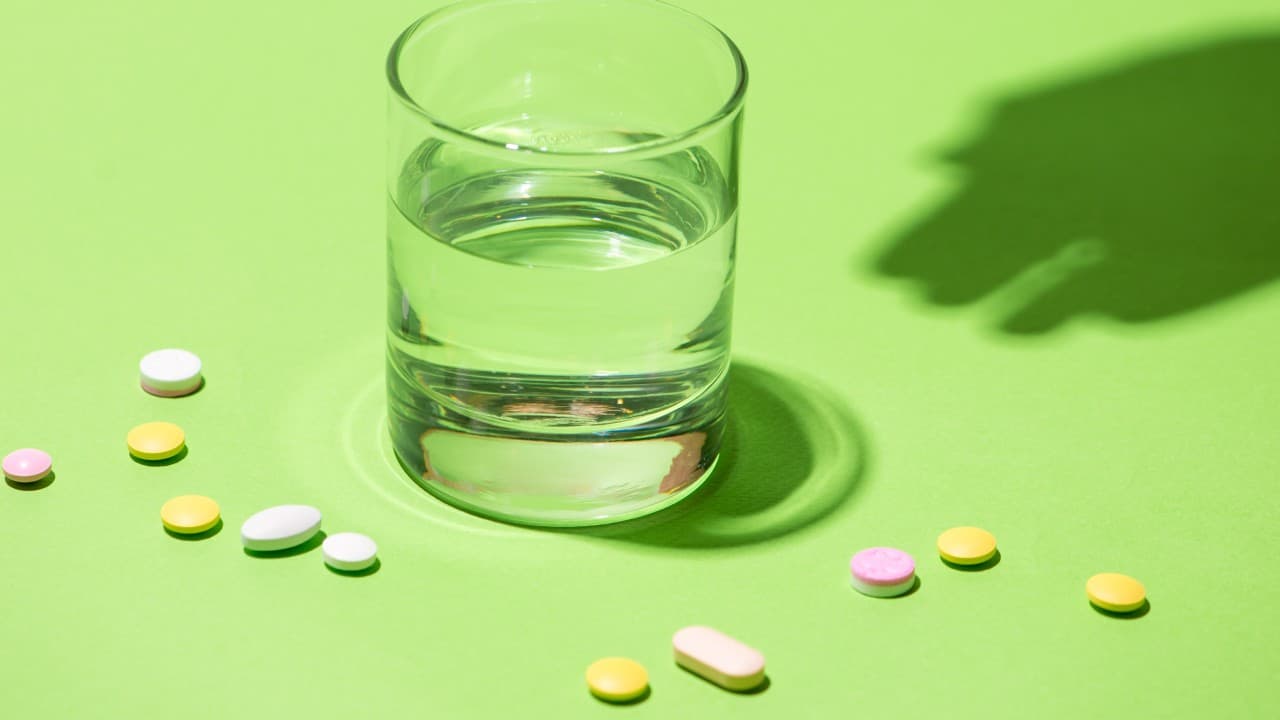
Even at very low concentrations, some medications can disrupt the behavior and biology of aquatic critters, such as fish. A veteran EPA (Environmental Protection Agency) scientist, Christian Daughton, whose field of study involves the effect of pharmaceuticals on waterways, stated that even the smallest drug particles can significantly alter the behavior of fish and shellfish.
What is more, some medications amass in aquatic critters over time. Fish whose brains contain traces of Prozac appeared to be aggressive, antisocial, and anxious. Fish whose brains contain traces of other similar pharmaceuticals, such as Zoloft, proved to be less anxious. While this may sound like an interesting, even amusing fact, the truth is that these fish become far less efficient when it comes to fleeing from predators.
What About Birth Control Pills?
To put it simply, these are particularly bad for the environment – synthetic estrogen-type hormones can have a very negative effect on oceanic species.
A study from a couple of years ago showed that male specimens of some species of fish can develop female traits when exposed to estrogen. And while these specimens were still capable of reproducing, female fish of the same species simply didn’t want to mate with them.
Don’t We Pee Out These Meds Anyway?
A researcher at PSI (Product Steward Institute) called Kate Hagemann stated that the excreted and intact meds can’t really be compared, saying that the latter are far more potent due to the fact that they were not metabolized.
In other words, polluting water by adding yet another source of such chemicals through flushing intact pills down the toilet is not something you want to do. There’s a good chance they’ll end up in waterways and oceans, where they can cause serious harm to aquatic life in many different ways, as mentioned above.
What if I Chop Up Used Pills Before Trashing Them?
Some people think that one of the best methods of disposing of used pills is by chopping them up and then mixing them with coffee grounds or cat litter before throwing them away (you cannot flush cat litter down the toilet either)
Even though this is certainly a better solution than just flushing them down your toilet, you can rest assured that your old pills are going to end up in landfills. There, they can easily mix with water and pollute the environment, which pretty much brings you back to square one.
There’s also the option of putting the meds into plastic bottles – after all, these don’t leak so easily. However, this also means adding even more plastic to the aforementioned landfills. In the end, the best solution seems to be opting for one of the medication take-back programs.
Okay, But Where Do I Find a Medication Take-Back Program?
Believe it or not, a lot of states and localities host their own medication take-back programs – these are starting to pop throughout the entire US. In addition to that, the DEA periodically holds nationwide drug take-back programs at local police stations. In most cases, the excess pills are just incinerated, together with heroin, cocaine, and other seized illegal drugs.
To check if there’s one such program in your region, go to Earth911.com and search the website’s database for “expired or unwanted medications”. Don’t forget that you can also donate unused pills to charity. In some US states, it is possible to donate various types of prescription medications, as long as the packaging is unopened and the pills are not expired.
Check out this post if you are wondering: Can you flush baby wipes? Or maybe you are also asking: Can you flush hair down the toilet? And what about flushing food down the toilet?
The Conclusion
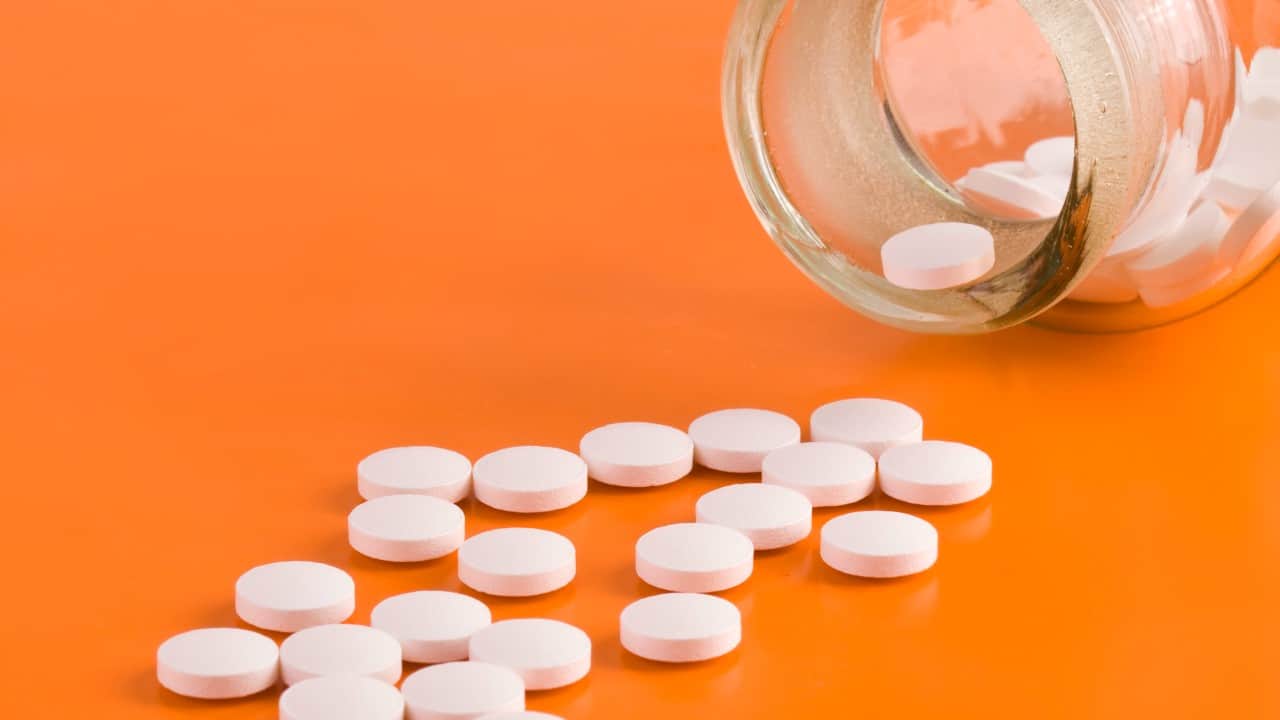
So, to answer the question from the title – yes, you can flush pills down the toilet, but that’s definitely not something you should do. That’s because drugs that are disposed of in that way typically end up in waterways and oceans, where they can do a lot of harm to aquatic life. Opt for one of the medication take-back programs instead, or simply donate your unused pills to charity.
